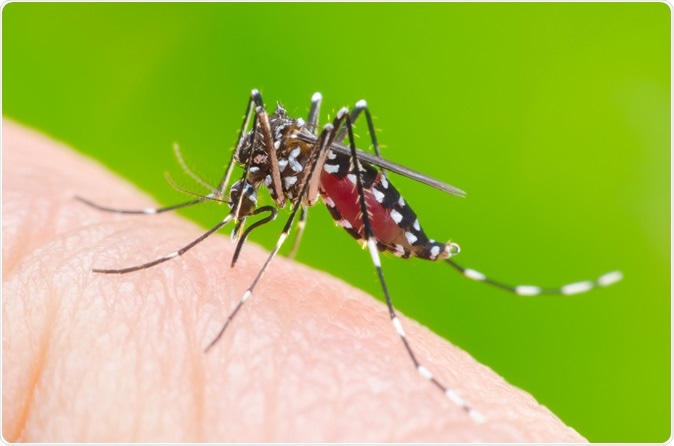A new study has tried to assess the genetic variants among mosquitoes that make them more susceptible to spreading deadly viral diseases such as dengue, yellow fever, Zika and chikungunya and more resistant to insecticides that are used to kill them.
The study titled, 'Improved reference genome of Aedes aegypti informs arbovirus vector control', by researchers from seven countries, including Australia’s QIMR Berghofer Medical Research Institute, has mapped the genetic make-up of these insects which could be ground breaking in vector control.
The team was looking at the genomes of Aedes aegypti mosquitoes that carry viruses like Zika and dengue. They noted that some newly discovered genes could make them resistant to insecticides.
Modification of these resistant genes may help stop the mosquitoes from spreading disease, the researchers hope. Dr. Gordana Rasic, one of the researchers said, “One of the key things that we want to achieve is to modify these mosquitoes in a way that will help control them.”

Aedes aegypti mosquito on human skin. Image Credit: khlungcenter / Shutterstock
They looked at “physical and cytogenetic maps of the mosquitoes to see how these mosquitoes differed in their preference for human hosts for biting as well as how it alters their egg laying sites. They noted that there is a specific locus called the M locus on the mosquito genome where there is a variation in the glutathione S-transferase genes or the GST gene that is important for resistance to insecticides.
These GST genes are actually responsible for coding for proteins that detoxify and excrete the insecticides that are used to kill the mosquitoes. When modified these GST genes help the mosquitoes develop a resistance to the insecticides used against them and this makes the chemical ineffective against the pests.
A look at these genes of the AaegL5 genome would help interventional strategies for vector control in controlling mosquitoes that carry the dengue virus and the Zika virus.
The authors write, “high-quality genome assembly and annotation described here will enable major advances in mosquito biology.”
The team also found variants of “chemosensory ionotropic receptors” among the mosquitoes. These connect the attraction of the mosquitoes to certain smells and tastes present on human skin that make them more prone to mosquito bites.
The authors state in their work that this could provide clues to developing “novel mosquito repellents. ‘Sterile Insect Technique’ and ‘Incompatible Insect Technique’” that could help reduce mosquito populations. Genetic modification of the male mosquitoes could help alter the genes of the progeny is ways so that they fail to transmit the infection.
The authors sign off that better understanding of the genetics of mosquitoes could “facilitate genetic control of mosquitoes that infect many hundreds of millions of people with arboviruses every year.”
Mosquito bites are known to spread several life-threatening diseases including malaria, dengue, chikungunya, zika etc.
Zika alone affects around 86 countries and regions around the world and can affect pregnant mothers and severely harm the unborn babies.
Dengue too is a viral infection carried by mosquitoes that causes deadly hemorrhagic fever or fever along with very low platelet counts that can cause spontaneous bleeding.
Malaria is a parasitic infection that still manages to kill hundreds of thousands around the world.